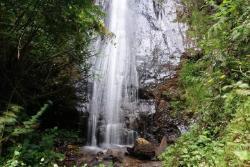Valuing nature
 Modern society’s predominant focus on economic markets often results in decisions ignoring impacts on the environment, which in turn may have human and economic costs. Estimating the (economic) value of nature allows the ecosystem service benefits and costs to be identified, measured and communicated in the language of the world’s dominant economic and political models (TEEB, 2010). Placing values on nature provides evidence to help ensure society takes responsibility for the Earth’s environment, enhancing societal welfare and, in developing countries, reducing poverty.
Modern society’s predominant focus on economic markets often results in decisions ignoring impacts on the environment, which in turn may have human and economic costs. Estimating the (economic) value of nature allows the ecosystem service benefits and costs to be identified, measured and communicated in the language of the world’s dominant economic and political models (TEEB, 2010). Placing values on nature provides evidence to help ensure society takes responsibility for the Earth’s environment, enhancing societal welfare and, in developing countries, reducing poverty.
CRiSis staff have been undertaking research that values nature for over 20 years. Projects have evaluated a wide range of environmental issues (biodiversity conservation, agri-environment, water resources, forestry, marine protected areas) in the UK and overseas (Africa, Asia, Caribbean). Funding has come from a wide range of bodies including: NERC, ESRC, AHRC, DfID, Defra, CCW, WWF and RSPB.
Valuing nature and its ecosystem services is an essential tool to help responsible societies achieve a sustainable future, allowing individuals, businesses and policy makers to internalise these benefits / costs into sustainable decisions. The ‘Valuing nature’ theme centres on two core conceptual models: Ecosystem service assessments and Environmental valuation.
